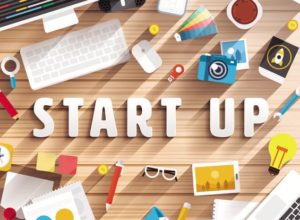Tag: startup
Perspective from the pharma industry to value-based care
Stamen Popov, the Novartis Oncology Business Unit Head for Bulgaria & Macedonia was a keynote speaker at Webit.Festival 2017. His keynote covered the topics about the “from cost to value ” conversion in healthcare and treatment.
Healthcare spending is increasing faster than than the current economic climate’s capabilities
Many countries are concerned that higher spending doesn’t lead to proportionally better outcomes. Healthcare systems waste a significant amount of resources that limits the fiscal space and hinders performance. The largest percent of wasted resources goes to over-hospitalization, over-examinations and over-prescription of pills. Waste is also created by inefficient or flawed rules, overly bureaucratic procedures and poor execution or lack of best practices, e.g. effective preventive care or patient safety, low volume for specific treatments per hospital, etc. Mr Popov made a point that the most expensive pill appears to be the one which hasn’t delivered any positive effects to the patient. The pricing in the industry has to start evolving with accordance to the fast paced changes in technology and the development of new ways of treatment. Companies should to be paid for a result delivered, not for a specific pill. A shift needs to be made in pricing, away from what has been a transactional approach to a value-based approach. That should mean focusing on the outcomes and really communicating the value of the medicines and pricing them accordingly. Care routed in outdated habits, ignoring scientific findings and motivated by something other than optimal care shouldn’t be the care of today.Focusing on value-based care, reducing waste and directing investments to the point where greater value can be produced is critical for sustainability.
Universal health care aspirations will be hard to materialize if we don’t shift to value-based care and change policies to support this shift. This change requires collaboration with every member of the healthcare ecosystem and better public-private partnership. Healthcare systems should stimulate more effective treatment results with the help of all parties involved in the process - patients, medics, researchers, healthcare providers and pharma companies. If you want to stay up-to-date check the Webit.Festival website for upcoming speakers and our ticket options.Dancing with an Elephant: Corporates & Startups
Apply for our Founders Games and get the chance of being among the 200 startups presenting their innovative idea in front of investors, business leaders and all attendees of Webit.Festival 2018.
Corporates & startups. Two forces of the business world which are as much different as they need each other. Brian Collins (AngelHack), Jonas Jacobi (IBM) & Matthias Schanze (Siemens) put some light on this complex relationship Mr. Schanze described as”Dancing with an elephant”
The open API (Application Programming Interfaces) revolution took of 5 years ago
A familiar example of APIs in action is the ability to sign into different accounts or services with our Facebook login. We can log into Pinterest, for example, by using our Facebook login credentials. That revolution was built on the idea that corporates could start opening up their technology for developers & startups. By doing so they were able to find a whole new strategy. In that way, the strategy shifted. It shifted from a B2B or a B2C focus to a Business to Developer focus. As such, innovation programming quickly went on the rise. Corporates began looking at developers and startups as a whole new strategy to their strategic plans and in doing so they’ve started working and finding ways to engage with startups & developers at an earlier and earlier stage.Why the relationship between startups & corporates is important
Big companies have more than enough funds to put in place and do their own research. What these companies have noted is that a lot of innovation occurs outside the company itself. That’s one of the main reasons companies like IBM, Siemens and others of this size have been involved in the startup ecosystem for quite some time already. Startups do set trends and it’s important for large corporations to always keep an eye on new trends and new technologies that are emerging fast. So what are these companies looking for? Big ideas. Great technologies. And innovations. Innovations that disrupt industries and possibly create new markets. Transformation, not only for the company itself but for its clients as well.Value proposition to the corporates
Corporates are well aware that they cannot invent everything by themselves. Co-creation and co-innovation with startups is a key point of their development. The transition is turning from internal Research & Development departments inside of corporates towards creating an external community, a liquid R&D force in essence. There’s the notion that most big corporates engage with, acquire or invest their funds in startups that already make some millions of revenue but in reality that is not the case anymore. The practice of an early engagement has grown immensely and that calls for more fair chances for more startups.Megatrends in Healthcare
Webit.Festival Europe 2017 shaped the milestones for all things digital in healthcare
The topic will be continued in 2018 with a separate 2-day event called Webit.Health co-chaired by Plamen Russev, the Chairman of Webit Foundation and Prof. Shafi Ahmed, Co-founder and surgeon of Medical Realities. Make sure to book your tickets now, at the Super earlybird price here. 2017 health Summit saw some of the biggest companies’ representatives in the world sitting together in a panel discussion - Rumyana Trencheva, Managing director SAP SountEast Europe, Mr Omer Saka, Partner at Deloitte, Dr Stamen Popov, General Manager Oncology of Novartis and Milena Stoycheva, CEO of JA Bulgaria, moderated by Dr. Rosen Dimitrov, Public Affairs Manager at Novartis. You have a vast experience in healthcare and innovations and wish to tell us about it - apply for speaking here. Ms Trencheva gave a good start of the discussion assuring that megatrends all over the world are not something selected, they are not happening in selected, VIP, countries - they are spreading. The contemporary consumer is demands more and more from the pharmaceuticals, from the technology companies and it is becoming ever more challenging to make sure consumers’ needs are met.The change of our perception on what healthcare is
Another megatrend that was clearly stated by Mr Saka is the change of our perception on what healthcare is do we mean a pill, a medical device of some kind or a hospital bed. The key solution is finding a way for these three elements to work together in the modern healthcare system. Furthermore, the matter of how much we, as consumers, pay for healthcare came to forefront. It is expected that in the next 10 years or less patients will be treated and will be provided with solutions that go beyond the pill - and this is for the mass, not only for the selected ones who can afford it. Dr Popov clearly stated that pharmaceutical companies no longer rely on the pill as a method of treatment - they broaden their vision using the digital technologies and these solutions will very soon come to patients who need them. This gives a huge advantage - transparency. Each of us, as human beings, is a data center, based on the choices we make every single day. In fact, transparency in healthcare system is a major block each of the technology companies all over the world are trying to achieve.With this follows one of the most important Megatrends - prevention as the form of treatment
It is considered that people nowadays take more and more care of themselves - in the form of wellness. We will have a huge number of population taking great measurements to maintain their health; in order to survive, people will take ownership on one’s health, environment and the ecosystem as well as putting efforts into changing the ecosystem. Finally, all these megatrends are impossible to happen without collaboration of technology companies, startups to bring fresh ideas and doctors. There’s no need for an engineer to develop an app by himself when they clearly don’t know specifics, rather, it is the healthcare industry to develop and change the ecosystem. Going out of the pharmaceutical industry, the biggest companies are also working on building connections with physicians and to use these relations to integrate new type of companies into this world. Webit.Health will continue this kinds of discussions in 26th - 27th June with ever more interesting guests who will show in action and demonstrate the modern healthcare - something that is happening now, not some time in the future. If you have an interesting idea and your company is less than 5 years old - show it by applying here.It’s evolution, baby!
Starting by examining the opinion of Webit’s Blue Stage audience on their belief in evolution or if God made it all, Michael Schuster, partner at Speedinvest, managed to deliver a pretty helpful and interestingly funny presentation on the topic of the two main intertwined disruptors in business: startups and investors.
Tides turn and seasons change, yesterday’s predator becomes today’s prey. Why are some companies around for tens or a hundred of years already, be it Siemens, IBM, and whatever company acknowledged by everyone as a steady rock in business, while others don’t survive the light of the next day?
Schuster presented the ideal graph of a startup funding escalation:
А startup is launched with friends, family, getting private and angels’ investments, then going through series of rounds and going up and up until the one point IPO. It would’ve been nice if every startup story goes this way, but most of the times it doesn’t happen as ideal as this. Startups “start”, get whatever help possible, moving from getting seed investments to almost disappearing, going up and down until the moment of breaking through the market or collapsing and disappearing. For a startup, what is essential before the run for scaling, acquisitions and becoming unicorns, is that: you just need to survive. And in order to survive in the world and not become an extinct dinosaur, the law of evolution applies pretty much for startups too: it is not the strongest of the species that survive, nor the most intelligent, but the one most responsive to change. Both statistics and reality show well enough the differences between the european and US markets. The business models applied in the latter don’t always work that well in the european market which is not always taken in enough consideration. Funny enough, investment companies, as an industry that is actually funding disruption hasn’t been disrupted itself in a long while. A lot of things need to be considered by startups while trying to get the attention of investors and customers. Big, trendy words like AI, customer centric, big data and so on are constantly thrown at the funding companies; startups are chasing investors not quite suited for them and accelerators way before the time for this has come while missing some important points.If you are interested in learning what they are, check the full video of Schuster’s presentation at last year’s Webit here: [embed]https://www.youtube.com/watch?v=KZRUcoHxn-c[/embed] Keep up with Webit.Festival 2018 agenda with a series of startup events such as the Founders Games, Startups & Investors Summit, nurturing the connection between thesе two intertwined parties. And more.See the latest trends in Tech investments at Webit.Festival
Despite the fears of a slowdown last year, the investment in European startups hit $12 billion mark, which has put 2016 on par with previous year’s record levels.
The Old Continent already has prominent hubs for startups and innovation. But right now we can see that the well established centers, such as Berlin, Stockholm and London are stepping aside to an emerging destinations in Central and Eastern Europe.
This has led to an increasing volume of smaller investment deals, which helped to offset the decline in larger rounds across the region. In 2016 Europe registered 943 deals between $1m and $10m.
Right now, there is also a growing appetite for tech investment among the private equity funds.
This year, Webit.Festival will again give promising startups from Europe and around the world the floor to present their ideas in front of top-level investors. The event will be held on 25-26 April in Sofia Tech Park under the patronage of the President of Bulgaria Rumen Radev, the Mayor of Sofia Yordanka Fandakova and the European Commission.
We not only provide free grant for startups to get a free expo table, free festival tickets and opportunity to meet unparalleled selection of top enterprise leaders, but also a chance to win €200 000 seed investment in our Founders Games.
With over 93% startup failure overall rate, the selected Webit startups for the Founders Games’s semi-finals in the past 7 years have less than 30% failure rate.
Being among the Webit's Founders Games startup list is a statement of the company's credibility, innovation and potential in front of enterprise and investors as well as a great marketing opportunity.
During Investments Summit you will get the chance to listen to the Partner Innovation Leader for Europe of IBM Watson Christoph Auer-Welsbach, the Vice President of IBM for Cloud and Mobile Technology Jonas Jacobi, the Global Head of Siemens Technology-to-Business Center Sven Scheuble, the CMO of AngelHack Brian Collins, the Partner at SpeedInvest Michael Schuster, the Partner at Flint Capital Sergey Gribov, the Co-founder & Managing Partner at AVentures Capital Andrey Kolodyuk, the Investment Director of 3TS Capital Partners Marius Ghenea, the Co-lead for Growth Capital & Venturing Services at Deloitte Sriram Prakash, the Investment Director of iTech Capital Alexey Telnov, the Advisor of 8VC Jon Soberg and the Partner at Hummingbird Ventures Pamir Gelenbe.
Here you can see a full list of the confirmed speakers at Webit.Festival, while here you can get all the information you need about the tickets for the event.
Founders Games
Founders Games is the largest event into the startup ecosystem. The event provides scene to entrepreneurs from Bulgaria and CEE region to present their companies in their brilliance. CEEDS’15 by Webit is keen to identify and endorse the first CEE startup champion. With the recent exit of Telerik from Bulgaria at 264 000 000 USD the CEE startups scene has a new proof of success and the organizators of CEEDS’15 are sure it is just the beginning.
To boost this process they shall be selecting number of startup from around CEE to exhibit for free at CEEDS by Webit as a part of the whole commitment to the ecosystem. A special StartUp Expo shall gather together all selected startups and a pitch stage shall help them boost their company and present it in front of investors, enterprise and European Commission representatives. In case your startup is selected to exhibit for free and pitch on the stage you would only have to pay for 3 tickets and shall receive a free expo table.
Startup founders know that in order for your startup project to be successful you should have an unique idea, but they also know there is something more. No matter how brilliant your idea is, it worths nothing if you do not have place with appropriate audience where to present it. Problem solved, CEEDS’15 has the perfect audience. To convince investors and business angels to believe in your product is even harder, but it depends on your own motivation and passion about the idea. Have in mind that the investors who will be at CEEDS’15 shall be eager to see and why not to invest in products with great potential.
You have now the opportunity to apply for a free expo stand where during Founders Games to present your product to media, investors and some of the most innovative worldwide companies like Google, SAP, Microsoft, Akamai, Experian and many other. Take this opportunity and apply now!
Bakhrom Ibragimov, EBRD: The successful team I invest is deeply passionate
 Bakhrom Ibragimov started his career as technology investment banker with CSFB/DLJ and Cowen & Co. He was also leading investments in European and the US technology companies with Virgin Green Fund as a Founding Principal and TLcom Capital as Investment Director. Bakhrom also was Internet Finance Director and Associate Director of Planning and Analysis in Virgin Media.
Bakhrom holds two Master degrees on academic scholarships from the London School of Economics and Cambridge University, and an honors Bachelor degree from Tashkent State Technical University in Uzbekistan.
Today we're talking with him about the startup success, investments and the startup ecosystem in CEE region. Bakhrom Ibragimov is one of the top investors you can meet this year at CEEDS by Webit, who are not afraid to invest - do you dare to become a startup superstar?
CEEDS: What is one sign of a potentially successful start up?
B.I. A team deeply passionate about a product that makes a difference to a large market.
CEEDS: How can you evaluate startup ecosystem in CEE region? What about in 5 years from now?
B.I. I am very excited about it, a lot more activity needs to happen and is going to happen as more very smart people in the CEE commit themselves to entrepreneurship.
CEEDS: Which do you prefer - small investment in a very early stage startup or large investment but later? Why?
B.I. We do not invest in seed companies. We invest from Series A to growth stage. This is the stage where we can help companies more.
CEEDS: Is an investment in a startup more than just money?
B.I. It is. As an investor, you first of all commit to the founder vision and play your role in supporting the founder going after it.
CEEDS: Have you ever regretted an investment you had made?
B.I. You have unsuccessful investments, otherwise impossible to invest in the tech space. As an investor, I believe it is important to recognise what founders you can help achieve their goals and what founders you cannot help achieve their goals. You can have regrets about your personal assessment of the founder/vision match. Sometimes the vision (product – market match) is not adequate, sometimes the match between the founder and the vision is not adequate. You do not regret investments, you can regret your assessment of the ingredients.
CEEDS: You say you invest in changing lives. How do you recognize that one startup will change lives?
B.I. You see how many people the product addresses, what difference it makes for those people and assess in detail the initial market feedback.
CEEDS: Whom you will recommend to attend CEEDS’15 by Webit?
B.I. Companies looking for partners.
Bakhrom Ibragimov started his career as technology investment banker with CSFB/DLJ and Cowen & Co. He was also leading investments in European and the US technology companies with Virgin Green Fund as a Founding Principal and TLcom Capital as Investment Director. Bakhrom also was Internet Finance Director and Associate Director of Planning and Analysis in Virgin Media.
Bakhrom holds two Master degrees on academic scholarships from the London School of Economics and Cambridge University, and an honors Bachelor degree from Tashkent State Technical University in Uzbekistan.
Today we're talking with him about the startup success, investments and the startup ecosystem in CEE region. Bakhrom Ibragimov is one of the top investors you can meet this year at CEEDS by Webit, who are not afraid to invest - do you dare to become a startup superstar?
CEEDS: What is one sign of a potentially successful start up?
B.I. A team deeply passionate about a product that makes a difference to a large market.
CEEDS: How can you evaluate startup ecosystem in CEE region? What about in 5 years from now?
B.I. I am very excited about it, a lot more activity needs to happen and is going to happen as more very smart people in the CEE commit themselves to entrepreneurship.
CEEDS: Which do you prefer - small investment in a very early stage startup or large investment but later? Why?
B.I. We do not invest in seed companies. We invest from Series A to growth stage. This is the stage where we can help companies more.
CEEDS: Is an investment in a startup more than just money?
B.I. It is. As an investor, you first of all commit to the founder vision and play your role in supporting the founder going after it.
CEEDS: Have you ever regretted an investment you had made?
B.I. You have unsuccessful investments, otherwise impossible to invest in the tech space. As an investor, I believe it is important to recognise what founders you can help achieve their goals and what founders you cannot help achieve their goals. You can have regrets about your personal assessment of the founder/vision match. Sometimes the vision (product – market match) is not adequate, sometimes the match between the founder and the vision is not adequate. You do not regret investments, you can regret your assessment of the ingredients.
CEEDS: You say you invest in changing lives. How do you recognize that one startup will change lives?
B.I. You see how many people the product addresses, what difference it makes for those people and assess in detail the initial market feedback.
CEEDS: Whom you will recommend to attend CEEDS’15 by Webit?
B.I. Companies looking for partners. Don’t take too much advice, risk & enjoy the entrepreneurship: 12...
Startups and entrepreneurship are all around us, so we have collected 12 quotes that will inspire and motivate you and why not they will give you a new perspective and ideas. Use them wisely:
- “A ‘startup’ is a company that is confused about – 1. What its product is. 2. Who its customers are. 3. How to make money.” – Dave McClure, 500Startups co-founder
- “What do you need to start a business? Three simple things: know your product better than anyone. Know your customer, and have a burning desire to succeed.” – Dave Thomas, Founder, Wendy’s
- “Risk more than others think is safe. Dream more than others think is practical.” – Howard Schultz, Starbucks CEO
- “No matter how brilliant your mind or strategy, if you’re playing a solo game, you’ll always lose out to a team.” -Reid Hoffman, LinkedIn co-founder
- “If you’re going to put your product in beta – put your business model in beta with it.” – Joe Kraus, Google Ventures partner
- “You just have to pay attention to what people need and what has not been done.” – Russell Simmons, Def Jam founder
- “There’s lots of bad reasons to start a company. But there’s only one good, legitimate reason, and I think you know what it is: it’s to change the world.” -Phil Libin, Evernote CEO
- “Don’t take too much advice. Most people who have a lot of advice to give — with a few exceptions — generalize whatever they did. Don’t over-analyze everything. I myself have been guilty of over-thinking problems. Just build things and find out if they work.” – Ben Silbermann, Pinterest founder
- “If you are not embarrassed by the first version of your product, you’ve launched too late.” – Reid Hoffman, LinkedIn co-founder
- “The last 10% it takes to launch something takes as much energy as the first 90%.” -Rob Kalin, Etsy founder
- “If you’re not a risk taker, you should get the hell out of business.” -Ray Kroc, McDonald’s founder
- “The only thing worse than starting something and failing… is not starting something.” -Seth Godin, Squidoo founder, author and blogger
Entrepreneurship, Business Knowledge and Startup Ventures
The blue track of the Global Webit Congress will be featuring such key concept as what does entrepreneurship, startups and business knowledge have in common.
Prominent speakers together with Tech leaders, influential Founders, CTOs, CIOs of the world’s most innovative companies, disruptive start-ups, top talents, and over 400 investors and 300 accredited media will participate in these inspirational discussions. Join them now!
People tend to think about entrepreneurship exclusively in the context of startup ventures with a couple wild-eyed risk takers working out of a garage. What is entrepreneurship actually? Why is it relevant to all stages of life in business? How can it make even a mega-multinational more successful?
What are the stages of entrepreneurship, what all stages have in common, and why you are more entrepreneurial than you think (and that is a good thing).
Entrepreneurs need everything that is taught at a business school. Whether you are starting a company, buying an existing company to run or turn around, turning around a failing division inside of a company, or building a new business unit for your successful company …entrepreneurs use every tool to get the job done.
At the blue track of the Global Webit Congress one of our keynote speakers, Paul Kewene-Hite will briefly explore why entrepreneurship is vital to business of any condition and size.
 Paul Kewene-Hite of INSEAD has over 23 years business experience with start-ups and major technology companies.
Paul Kewene-Hite of INSEAD has over 23 years business experience with start-ups and major technology companies.
He actively mentors and consults to business and social entrepreneurs as well as governments and companies of all sizes. He has successfully worked in every corner of a technology company from tech support to finance to sales and business development to CEO.
He was a Technology Evangelist at Apple, and Director of Strategic Planning and New Business Development at NEC Computers. He was a venture capitalist and has served as VP, President and CEO of technology startups in the USA and Ireland. In addition to building technology companies, he has restructured and turned around companies in Australia and the US, he has launched a new venture in China, he built a strategic plan for an initiative by the Welsh government. He has opened new markets for businesses around the world. He has been instrumental in landing hundreds of millions in revenue for companies, and he has been intimately involved in raising millions in venture capital for multiple ventures. He has authored technology white papers and business plans, and has performed extensive business planning from full P&Ls to operations to market launches.
At INSEAD he is Director of the Entrepreneurship Accelerator, the Head Entrepreneur-in-Residence (EiR) as well as an Affiliate Professor of Entrepreneurship. Quite an impressive experience. Visit the Leaders of the Future Tech Summit to hear him and join the discussion on Startups, Entrepreneurship and Business knowledge book your tickets with early bird prices now.
 Paul Kewene-Hite of INSEAD has over 23 years business experience with start-ups and major technology companies.
Paul Kewene-Hite of INSEAD has over 23 years business experience with start-ups and major technology companies.He actively mentors and consults to business and social entrepreneurs as well as governments and companies of all sizes. He has successfully worked in every corner of a technology company from tech support to finance to sales and business development to CEO.
He was a Technology Evangelist at Apple, and Director of Strategic Planning and New Business Development at NEC Computers. He was a venture capitalist and has served as VP, President and CEO of technology startups in the USA and Ireland. In addition to building technology companies, he has restructured and turned around companies in Australia and the US, he has launched a new venture in China, he built a strategic plan for an initiative by the Welsh government. He has opened new markets for businesses around the world. He has been instrumental in landing hundreds of millions in revenue for companies, and he has been intimately involved in raising millions in venture capital for multiple ventures. He has authored technology white papers and business plans, and has performed extensive business planning from full P&Ls to operations to market launches.
At INSEAD he is Director of the Entrepreneurship Accelerator, the Head Entrepreneur-in-Residence (EiR) as well as an Affiliate Professor of Entrepreneurship. Quite an impressive experience. Visit the Leaders of the Future Tech Summit to hear him and join the discussion on Startups, Entrepreneurship and Business knowledge book your tickets with early bird prices now.








